
The FDA granted 510(k) clearance to Unfold AI, which was formerly known as iQuest, in December 2022.

The FDA granted 510(k) clearance to Unfold AI, which was formerly known as iQuest, in December 2022.
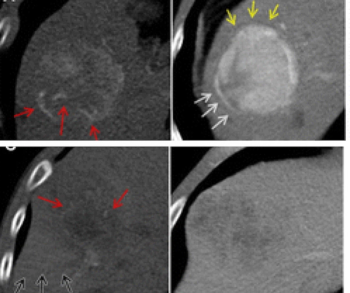
A hybrid computed tomography radiomics model demonstrated up to an 86 percent area under the curve in predicting microvascular invasion in patients with hepatocellular carcinoma in a recently published study.
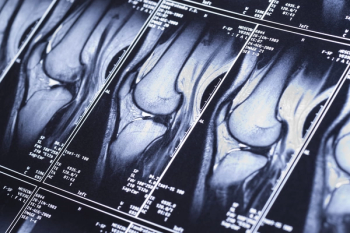
Researchers suggested that overnight use of a power-save mode on outpatient magnetic resonance imaging (MRI) devices in the United States could reduce annual energy consumption by 76,288.2 megawatt hours (MWh) and add up to $10.7 million in cost savings.
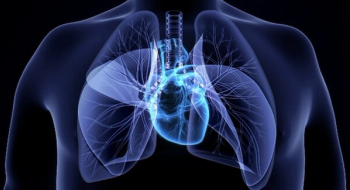
The artificial intelligence (AI)-powered EchoGo Amyloidosis can reportedly detect cardiac amyloidosis by assessing a single echocardiogram.

Catch up on the top AI-related news and research from the past month.

Review the case study and test your knowledge to make the correct diagnosis.
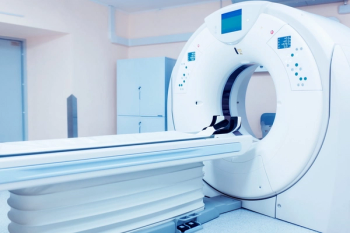
While one computed tomography (CT) scan appears to have no elevated cancer risk in pediatric patients, four or more pediatric exposures to CT scans are associated with increased risks for intracranial tumor, leukemia, and non-Hodgkin lymphoma, according to newly published research out of Taiwan.

Lamenting a lack of control over imaging requests from referring clinicians, this author suggests that a more collaborative approach between referrers and radiologists may facilitate more efficient use of imaging.

Catch up on the top radiology content of the past week.
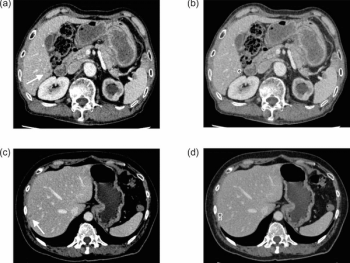
An emerging artificial intelligence (AI) software reportedly detected liver metastases in 53.7 percent of cases involving missed findings by radiologists.
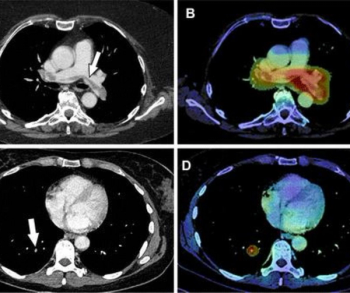
In a new study involving over 11,700 chest computed tomography (CT) scans in oncology patients, adjunctive artificial intelligence software demonstrated a sensitivity rate of 91.6 percent for incidental pulmonary embolism (IPE) and reduced median detection and notification time for IPE-positive scans from multiple days to one hour for a radiology department at a comprehensive cancer center.
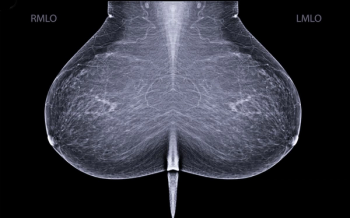
Emerging research looking at data from over 414,000 cases of breast cancer deaths suggests that Black women should begin annual mammography screening seven to nine years earlier than White women.
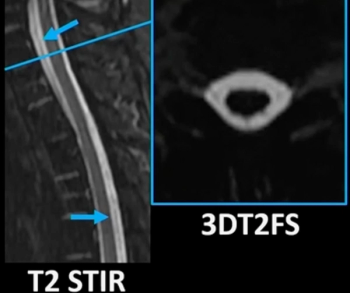
In a recent lecture at the American Roentgen Ray Society (ARRS) 2023 Annual Meeting, Andrew Callen, M.D., discussed a variety of imaging features associated with cerebrospinal fluid (CSF) leaks, the diagnostic utility of the Bern score as well as the merits of 3D T2FS MRI and dynamic computed tomography myelography.
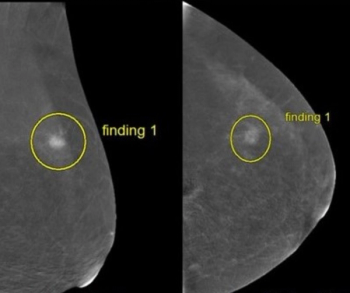
Earlier initiation of imaging after contrast administration with contrast-enhanced mammography may provide better visibility of lesions and conspicuity against background parenchymal enhancement, according to new research presented at the American Roentgen Ray Society (ARRS) 2023 Annual Meeting in Honolulu, Hawaii.

Review the case study and test your knowledge to make the correct diagnosis.
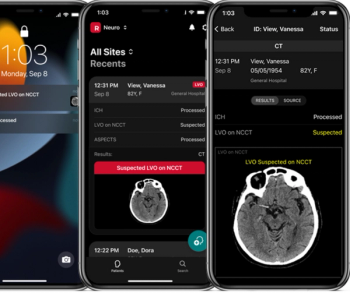
Powered by artificial intelligence (AI), the Rapid NCCT Stroke modality is reportedly the first medical device to gain FDA 510(k) clearance for detecting suspected large vessel occlusion and intracranial hemorrhage based on assessment of non-contrast computed tomography (NCCT).

Has a form of aversive conditioning sabotaged morale in radiology?
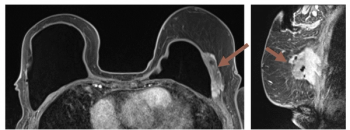
Given the increasing prevalence of breast reconstruction, researchers discussed key signs of common complications on magnetic resonance imaging (MRI), ultrasound and other imaging during a recent presentation at the American Roentgen Ray Society (ARRS) 2023 Annual Meeting in Honolulu, Hawaii.

Three-dimensional (3D) slice-to-volume (SVR) fetal magnetic resonance imaging (MRI) has over six times the fetal optic pathway visualization rate of standard two-dimensional MRI, according to new research presented at the American Roentgen Ray Society (ARRS) 2023 Annual Meeting in Honolulu, Hawaii.

Catch up on the top radiology content of the past week.
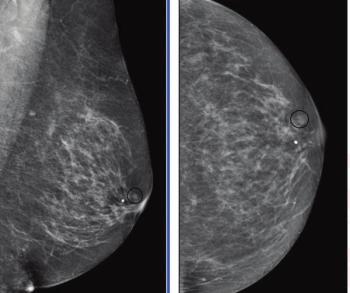
Recent research involving nearly 15,000 mammography exams in patients with a personal history of breast cancer revealed that digital breast tomosynthesis (DBT) was associated with a lower frequency of BI-RADS category 3 assessment and a lower malignancy rate for BI-RADS 3 lesions in comparison to full-field digital mammography.
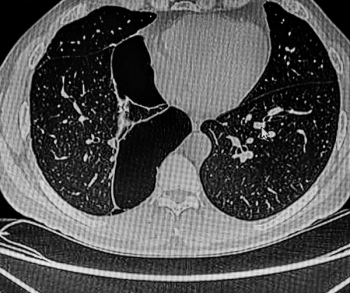
Over the course of a decade, people with preexisting emphysema who continued smoking had the greatest decline in lung density, according to computed tomography (CT) findings from a study involving over 8,400 total participants and over 4,100 current smokers.
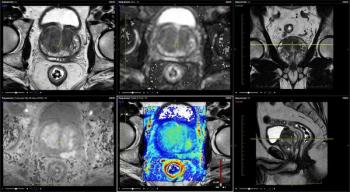
In addition to a previously FDA-cleared brain magnetic resonance imaging (MRI) module, the Advantis Platform features an artificial intelligence-powered prostate MRI module that offers simultaneous viewing of conventional and advanced sequences, and reportedly generates automated PI-RADS assessments.
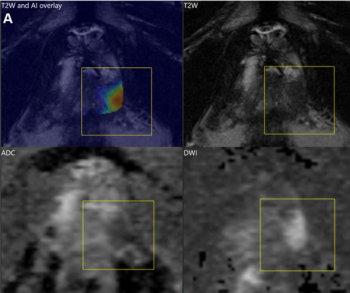
In a study of over 1,200 men with over 3,200 prostatic lesions, an explainable artificial intelligence (AI) model demonstrated a sensitivity rate of 93 percent for detecting clinically significant prostate cancer.
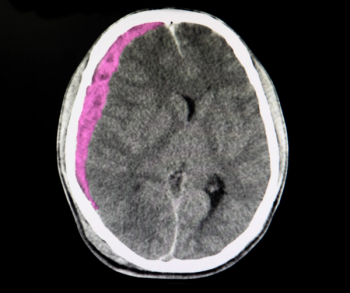
The artificial intelligence (AI) triage and notification indications include acute subdural/epidural hematoma and acute subarachnoid hemorrhage for head computed tomography (CT) imaging.

Review the case study and test your knowledge to make the correct diagnosis.
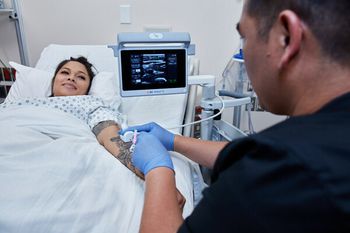
The BD Prevue™ II Peripheral Vascular Access System reportedly offers real-time needle depth markers that may reduce multiple needlestick attempts and allow easier placement of intravenous (IV) access in high-risk patients.
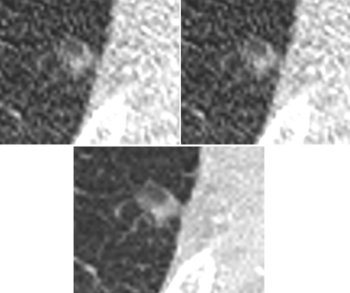
New prospective research demonstrated that the combination of ultra-low-dose (ULD) computed tomography (CT) and an artificial intelligence (AI)-based denoising method offered a greater than 95 percent sensitivity rate for differentiating negative and actionable Lung-RADS category findings with significantly reduced radiation dosing.
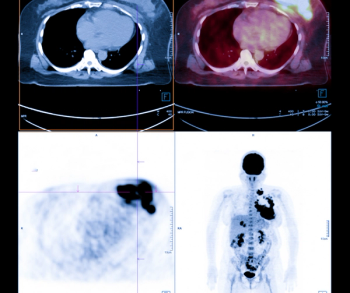
A recent prospective study found that progression-free survival (PFS) and disease-specific survival (DSS) were significantly associated with breast cancer tumor treatment response on 2-(18F)FDG-PET/CT imaging in comparison to contrast-enhanced computed tomography (CT), which showed no evidence of a significant association with tumor response.

A continued emphasis on sharpening skills, robust networking and living within one’s means are keys to navigating the ups and downs of the radiology job market.